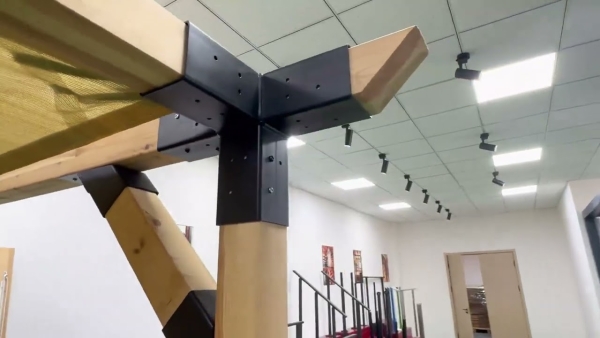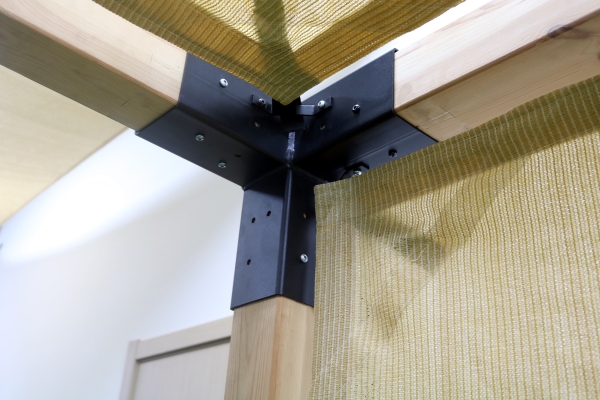Table of Contents
Benefits of Obtaining Planning Permission for a Pergola
When considering adding a pergola to your property, one of the first questions that may come to mind is whether or not you need planning permission. While it may seem like an unnecessary step, obtaining planning permission for a pergola can actually have several benefits. In this article, we will explore the advantages of obtaining planning permission for a pergola.
One of the main benefits of obtaining planning permission for a pergola is that it ensures that your structure complies with local building regulations. By obtaining planning permission, you can be confident that your pergola meets all necessary safety standards and will not pose a risk to you or your neighbors. This can provide peace of mind and help to avoid any potential legal issues in the future.
Additionally, obtaining planning permission for a pergola can help to increase the value of your property. A pergola that has been approved by the local planning authority may be seen as a desirable feature by potential buyers, which could help to attract more interest and potentially increase the selling price of your home. This can be especially beneficial if you are considering selling your property in the future.
Another benefit of obtaining planning permission for a pergola is that it can help to ensure that your structure is in keeping with the aesthetic of your property and the surrounding area. Local planning authorities often have guidelines in place to ensure that new structures are in harmony with the existing environment. By obtaining planning permission, you can be sure that your pergola will not detract from the visual appeal of your property or the neighborhood.
Furthermore, obtaining planning permission for a pergola can help to avoid any potential disputes with neighbors. Building a pergola without planning permission could lead to complaints from neighbors who may feel that the structure is intrusive or affects their privacy. By obtaining planning permission, you can demonstrate that you have considered the impact of your pergola on the surrounding area and have taken steps to address any concerns.
In conclusion, while obtaining planning permission for a pergola may seem like an unnecessary step, it can actually have several benefits. From ensuring compliance with building regulations to increasing the value of your property, obtaining planning permission can provide peace of mind and help to avoid potential issues in the future. Additionally, it can help to ensure that your pergola is in keeping with the aesthetic of your property and the surrounding area, as well as avoid any disputes with neighbors. Overall, obtaining planning permission for a pergola is a worthwhile investment that can help to enhance the enjoyment and value of your property.
Common Misconceptions About Planning Permission for Pergolas
When considering adding a pergola to your property, one of the common questions that may arise is whether or not planning permission is required. There are many misconceptions surrounding this topic, and it is important to understand the regulations in order to avoid any potential issues in the future.
In general, planning permission is not required for a pergola as long as certain criteria are met. These criteria typically include the size, height, and location of the pergola. For example, if the pergola is less than 2.5 meters in height and is located at least 2 meters away from the property boundary, it is likely that planning permission will not be necessary.
It is important to note that these regulations may vary depending on the specific location and local planning authority. Therefore, it is always recommended to check with your local council to ensure that you are in compliance with any regulations that may apply to your area.
Another common misconception is that planning permission is required for any type of structure, regardless of size or location. This is not necessarily the case, as smaller structures such as pergolas are often exempt from planning permission requirements.
It is also important to consider the impact that the pergola may have on neighboring properties. If the pergola is likely to obstruct views or cause any other issues for neighboring properties, it may be necessary to obtain planning permission in order to address these concerns.
In some cases, it may be possible to apply for retrospective planning permission if it is later discovered that permission was required. However, this can be a lengthy and costly process, so it is always best to ensure that all necessary permissions are obtained before construction begins.
In addition to planning permission, it is also important to consider any other regulations that may apply to the construction of a pergola. For example, building regulations may need to be adhered to in order to ensure that the structure is safe and structurally sound.
Overall, while planning permission is not always required for a pergola, it is important to carefully consider the regulations that may apply in your specific situation. By doing so, you can avoid any potential issues and ensure that your pergola is a welcome addition to your property.

In conclusion, the need for planning permission for a pergola is a common misconception that can lead to confusion and potential issues down the line. By understanding the regulations that may apply to your specific situation and seeking guidance from your local council, you can ensure that your pergola is a compliant and welcome addition to your property.






